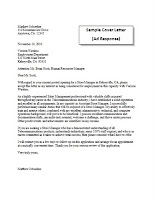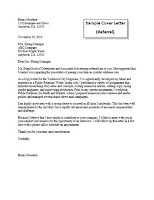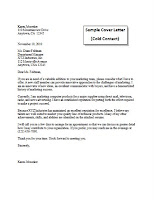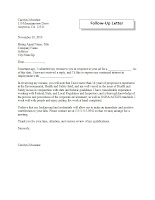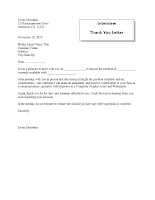Here's a good quick article on the best 5 things to say during an Interview:
5 Best Things to Say in an Interview
By Catherine Conlan
Monster Contributing Writer
The best things you can say in an interview won’t necessarily get you the job on their own, but they can certainly pave the way. Keep these five things in mind as you go through the interviewing process to give yourself the best chance at landing the job.
Ask Good Questions
According to Howard Pines, founder and CEO of BeamPines, “the best thing a candidate can do at an interview is ask good questions.”
Doing so shows that you are thoughtful and interested in understanding the company. There’s usually a chance to ask questions at the end of your interview, so be ready with questions that show you’re engaged in the process.
Pines suggests several questions, including:
- What are the biggest short- and long-term issues I would need to focus on in this position?
- What would I need to focus on differently than the previous person in this position?
- What organizational issues should I be aware of?
“I’m flexible.”
Whether it’s about possible job duties, a potential start date or simply timing for the second interview, stressing your flexibility makes you easy to get along with.
Hiring managers don’t like complications, and having to coordinate complicated schedules or haggle over a job description eventually just makes you look difficult. While you certainly don’t want to be a pushover -- and “flexible” shouldn’t define your salary negotiation -- show your potential employer that you’re interested in results that work for everyone.
The Company’s Own Words
Before your interview, become familiar with the company’s website and literature. Pay attention to the words used -- what’s important to the organization?
“In your interview, hit key words that appeared on the company website or brochure,” says Olivia Ford ofAdeptio. “These key words might include team, leadership, simplistic, culture or growth.”
Mixing these keywords into your answers can provide a subtle hint that you are plugged in to what the organization is looking for.
“That’s a Good Question.”
Use this phrase instead of blurting out “I don’t know” if the interviewer stumps you with a surprise question. It can give you a few moments to come up with an answer and, in the meantime, strokes the interviewer's ego a little bit too.
Avoid the “I don’t know” answer when possible, but of course don’t lie about your experience or training.
Reasons You Want the Job.
Knowing a job prospect’s motivations is important for managers who are hiring.
During your interview, talk about how this position fits into your future plans and the ideas you have about your career, how it fits with your values, and what you would like to learn from it. Talk about how you see yourself in relation to the company and what you believe you can bring to the position.
These kinds of thoughts show who you are as a person, and go a long way toward giving the hiring manager an idea about how you might fit in the company’s culture and values.
Next, what can you do to PREPARE yourself for an interview?
Assess your strengths and weaknesses

You will need to spend some time assessing your own strengths and weaknesses. For each area of strength you should be able to demonstrate (provide examples) of how it was developed and utilized. As for your areas of weakness, you have to know what you are doing to improve in that area. It is advisable to list on a sheet of paper all your skills, abilities, accomplishments and weaknesses and be able to provide examples from your past experience as to how you developed, utilized or improved these qualities. Relating your areas of strength to the required qualifications is a key factor in gaining the interviewers attention.
Study the position available
Review your understanding about the type of work/position you will be interviewed for. If you are interviewing for a marketing position, be aware of the typical job duties/responsibilities for that position as well as the required qualification to perform the job tasks. If you are not clear about the nature of the position you will be interviewed for, make sure to use your network of contacts to help you develop a better understanding
of the job.
Research the company
Find out as much as possible about the employer. Learn about the company from its website, annual reports, brochures, and other similar sources. You should be able to know the company’s exact name, history, purpose, services/products, major competitors, approximate number of employees, where its branches are located and its future prospects.
Know the dress code
Did you know that approximately 60% of job applicants are screened out because their appearance does not fit the organizational image? You should dress like other employees in the organization. If you are well-groomed and neatly dressed, your appearance will inspire a basic confidence in your work habits.
Bring appropriate materials
Take along additional copies of your resume, a list of questions to ask about the organization and position, a portfolio (if applicable), a pen and a pad of paper on which you can make a few notes to yourself. Make sure to note on a piece of paper the name of the interviewer, company address, and telephone number in case of emergency.
Find interview location ahead of appointment
Be sure to get specific directions for getting there. Repeat the directions and make sure they are correct. It is even better if you can make a “dry run” to determine the exact location prior to the meeting. You need to find out the approximate travel time to the interview location, check out the best route and parking locations. Make sure that you arrive 5-10 minutes before the interview.
Dress for Success:
Men
- Traditional business attire, i.e. navy blue or gray suit or sports coat and nice slacks, and a long sleeved pressed dress shirt.
- Ties should be silk and coordinate well with the suit. Avoid any flashy or “theme” ties such as ties with cartoon characters or seasonal events.
- Jewelry should be limited to one ring per hand a dress watch. No earrings, and of course, no visible body piercings!
- Cover any obvious tattoos.
- Shoes should be polished and leather dress shoes in black, dark burgundy or brown are best. Socks should match suit color.
- Hair neatly combed and clean. Facial hair well groomed as well.
- Avoid wearing too much cologne or after-shave.
- Well manicured nails.
Women
- Conservative business suit, dress or pants suit. Most appropriate colors are blue, gray, black or tan. Blouse color should be white or any complimentary colors.
- Jewelry should be modest with one ring per finger, earrings no longer than ½ inch and necklace, and no visible body piercings!
- Cover any obvious tattoos.
- Avoid excessively long fingernails. Your nail polish should be a subtle color and applied neatly.
- Shoes should have no more than 2-inch heels and should complement your outfit.
- Your hair should be well groomed and clean.
- Avoid wearing too much cologne, perfume, or make-up.It is very common to worry about something unfavorable occurring at the interview, but don’t allow yourself to worry too much. When you find yourself having negative thoughts, visualize yourself having a highly successful interview. This would be an interview where you are in control and performing your best. If you would like to further your relaxation try a deep breathing exercise such as inhaling through your nose for 4 slow seconds, holding your breath for 4 slow seconds and exhaling through the mouth for 8 long seconds. Try doing this three times before the interview. (but not in the interview itself).
The Art of Positive Thinking
It is very common to worry about something unfavorable occurring at the interview, but don’t allow yourself to worry too much. When you find yourself having negative thoughts, visualize yourself having a highly successful interview. This would be an interview where you are in control and performing your best. If you would like to further your relaxation try a deep breathing exercise such as inhaling through your nose for 4 slow seconds, holding your breath for 4 slow seconds and exhaling through the mouth for 8 long seconds. Try doing this three times before the interview. (but not in the interview itself).
Approaching the interview
In approaching the interview, keep in mind that you are really approaching a potential “customer”. Think of yourself as your own sales representative. You will be presenting the benefits of what services you have to offer. The decision to work for a particular company should be based on a mutual benefit to both parties.




